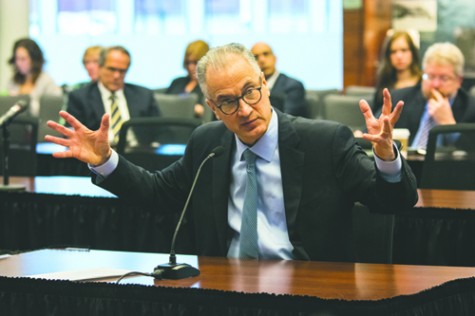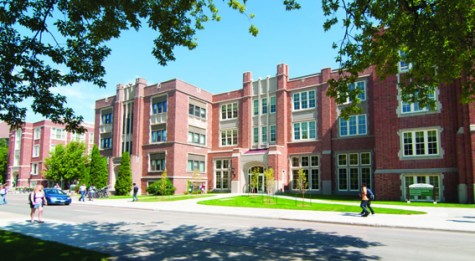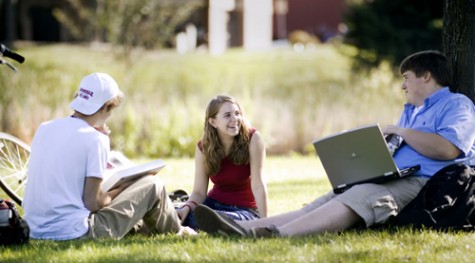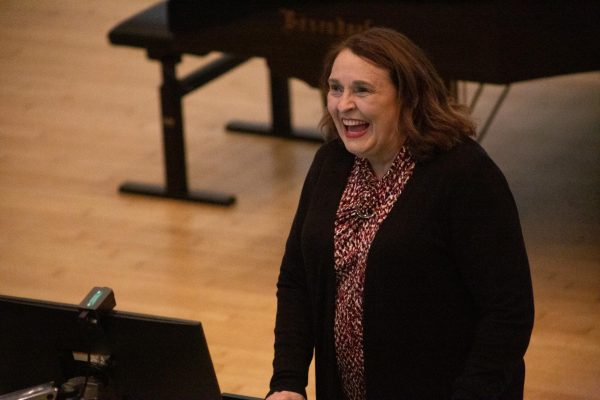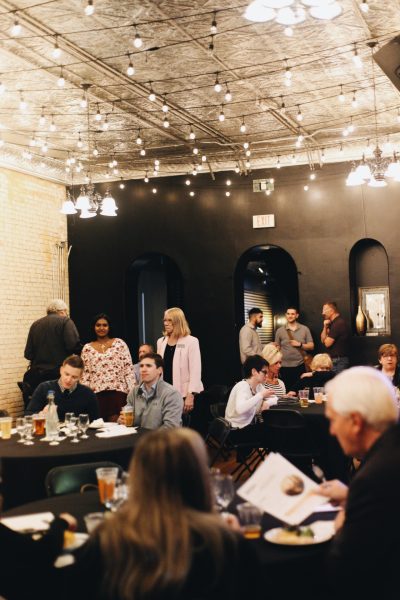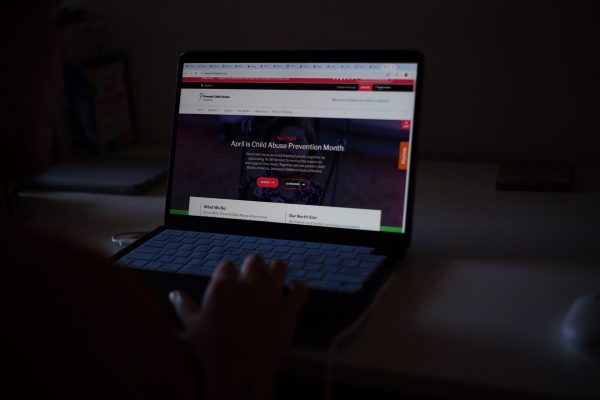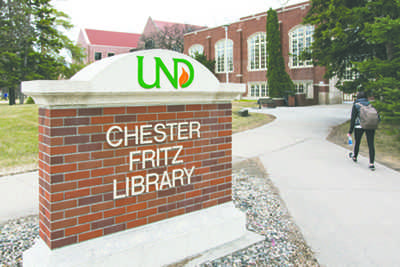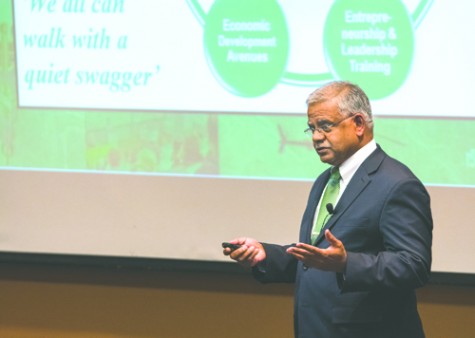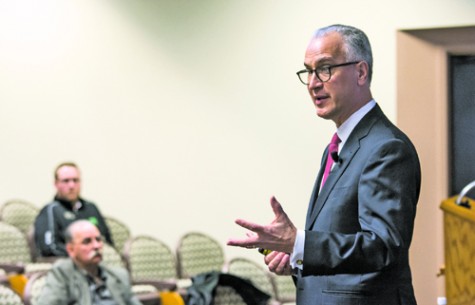Opportunity for engineers
A new opportunity has been made available for engineering students through the Jodsaas Center, which is located inside Harrington Hall on campus.
UND’s College of Engineering and Mines has been accepted into the Grand Challenge Scholars Program (GCSP), a program chartered by the National Academy of Engineers, and is currently accepting applications for next year.
“Imagine getting a 3-year scholarship to broaden, focus and improve your engineering education all while making real contributions toward solving important global problems,” says the GCSP website, in regards to what the program has to offer for prospective students.
Roughly 120 universities have already expressed interest in participating in this program, including the University of Minnesota, Duke, Yale and now the University of North Dakota.
“What [the NAE] said was: We need to get our technical people, our engineers in this country, more involved in the great problems of our society, like; providing clean water for people, and mapping the human brain,” said Dr. William Paulin, a professor in the college of business’s entrepreneurship department and the part time director of the Jodsaas Center.
The way the GCSP works is; students pick one of 14 different wide-reaching issues, which the GCSP committee believes engineers can contribute to the solution of. They then receive an advisor who is in the field whom they must show progress to, and eventually a committee they must also present their work to.
According to the UND section of the GCSP website, this three-year scholarship-based program at UND strives to encompass these five components:
· Research Experience: Project or independent research related to a Grand Challenge.
· Interdisciplinary Curriculum: Preparing engineering students to work at the overlap of public policy, business, law, ethics, human behavior and risk, as well as medicine and the sciences.
· Entrepreneurship: Preparing students to translate invention to innovation; to commercialize to maximize social impact and to develop market ventures that scale to global solutions in the public interest.
· Global Dimension: Developing the students’ global perspective necessary to address challenges that are inherently global as well as to lead innovation in a global economy. International travel.
· Service Learning: Developing and deepening students’ social consciousness and their motivation to bring their technical expertise to bear on societal problems.
Upon acceptance, the program provides students with: $500 per semester, research grants, business development grants, work/ study abroad fellowships, and service learning grants.
“For each student, their journey through the program will be different. They are going to choose their own Grand Challenge theme, they’ll have their own way of meeting the requirements, and so it’s really a customizable program,” said Brian Tande, an Assistant Professor in the Department of Chemical Engineering, and Director of the Jodsaas Center.
Applications for the GCSP are available through the Jodsaas Center’s website, and they are looking primarily for current freshman, although exceptions will be made, but that is not all the Jodsaas Center has to offer for students. Students in the College of Engineering and Mines should expect an email from the Jodsaas Center regarding this opportunity in the near future.
In 2008 the Jodsaas Center for Engineering Leadership and Entrepreneurship was established as a gift from UND School of Engineering and Mines Alum, Larry Jodsaas, in an effort to provide engineering students opportunities to develop skills beyond the traditional engineering curriculum, specifically in the realm of leadership and entrepreneurship.
“We try to broaden the horizons of our students and show them where their engineering may lead them. A lot of times that isn’t in a strictly technical job, but it’s a business related job where they’re still using the critical thinking and problem solving skills they learned here, but applying it in a different way,” Tande said.
Paulin emphasized the Center’s focus on “soft skills” in their educational process.
“Most engineering coursework is on hard skills; calculus, measuring rocks chemistry. Soft skills include: personal skills, group skills, business skills, and social sciences in contrast to the hard sciences.”
As listed on UND’s website, the mission of the center includes:
1. Developing the leadership and entrepreneurship skills of our students
2. Promoting the formation and development of student-led entrepreneurial ventures
3. Serving as the link between the School of Engineering and Mines and other established programs on campus, including the Center for Innovation and the Entrepreneurship Program within the College of Business.
Jodsaas Center hosts seminars, workshops, and provides students with resources to aid them in the achievement of these goals.
“Business is the way that people get things, so if you develop a way of delivering clean water everywhere, you’re going to need an organization to go out and make it happen.” Paulin said in regards to the entrepreneurial aspect the Jodsaas Center provides for the students it caters to.
The Jodsaas Center has expanded what it has to offer since its conception, due in part to a $150,000 donation from the Larson Foundation. This includes a workshop series for engineers who are working, and one for engineering students the in coordination with the EERC (Energy and Environmental Research Center), featuring the retired dean of business school, and a business best practice alumni.
Upcoming events put on by the Jodsaas Center include seminars on how to conduct a successful job interview, and how to write a resume. Students should stop by the center if interested, or email William Paulin at [email protected].
David Satre is the news editor for The Dakota Student. He can be reached at [email protected]


